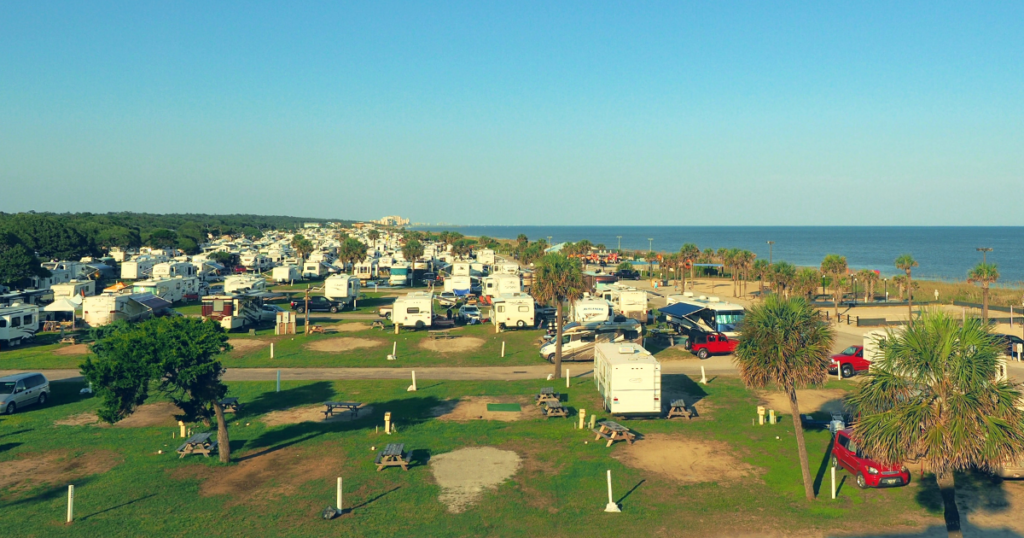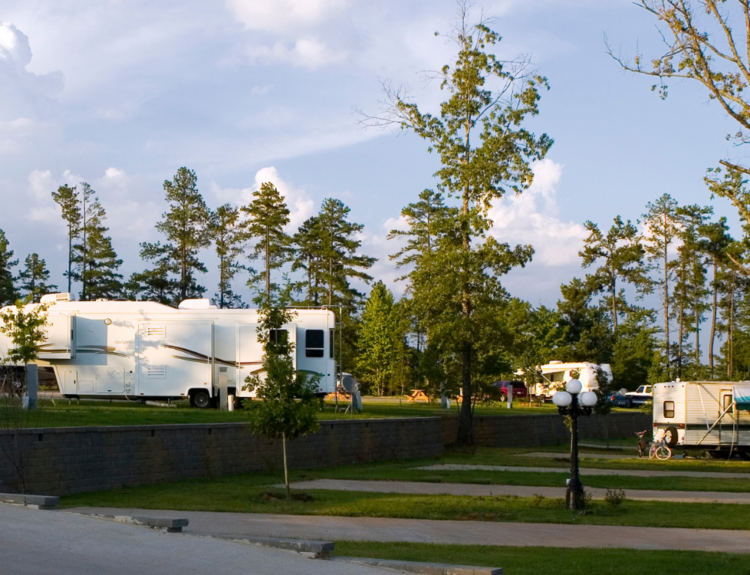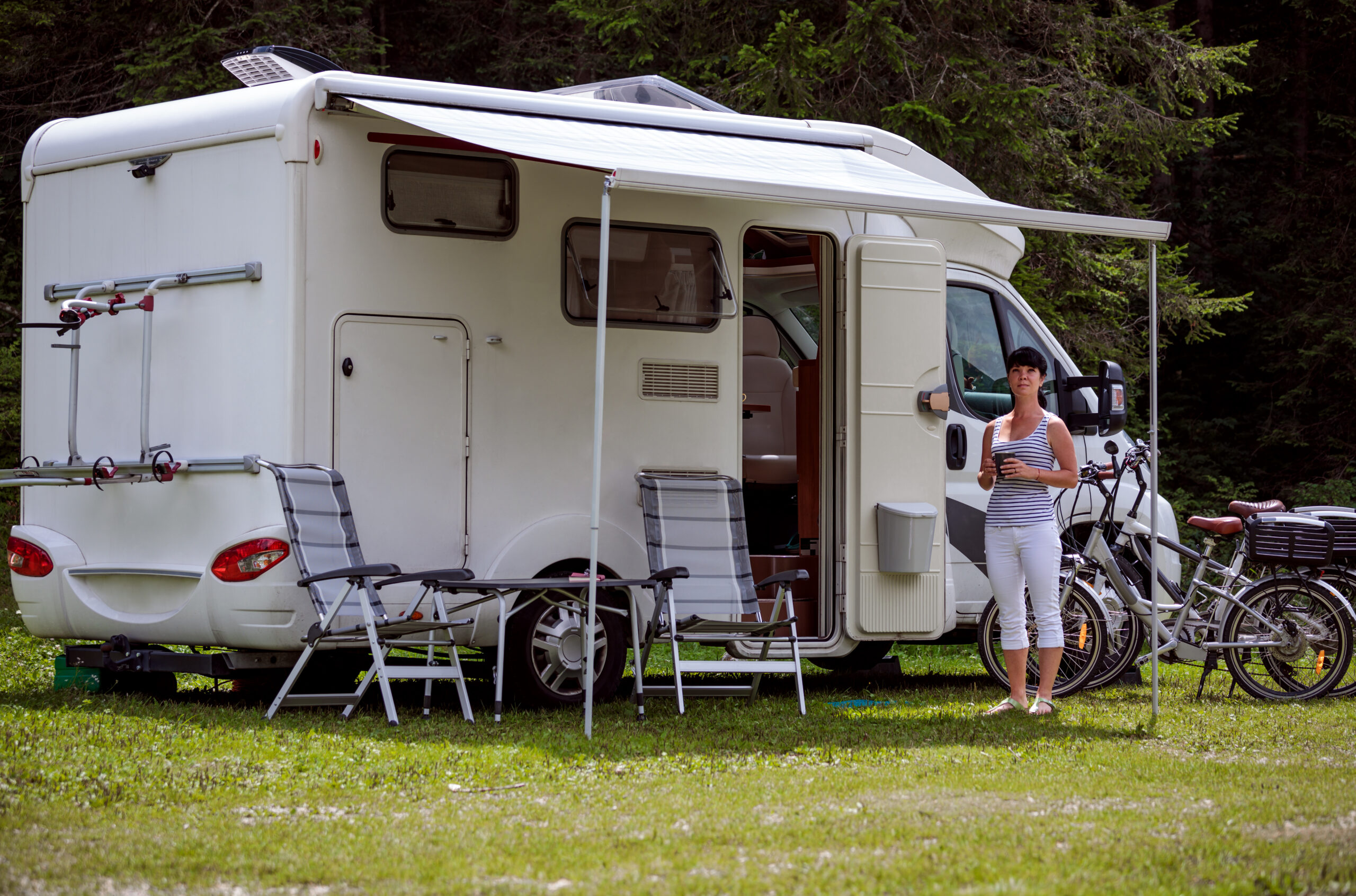For the entrepreneurial spirit, the growth of the campground industry presents a golden opportunity. Crafting memorable experiences and becoming a haven for RV travelers is an exciting adventure that an increasing number of investors are willing to embark on.
But the journey from idea to owning a thriving campground involves intricate planning, a sound business strategy, and a profound understanding of the industry. Whether it’s securing the perfect location, ensuring camper satisfaction, or standing out in a competitive market, each step of how to own a campground requires attention to detail.
Here, we will dissect the challenges and nuances of campground ownership. From understanding the basics to exploring growth opportunities, this article will equip you with the knowledge you need to embark on this exciting venture and succeed.
Understanding the Basics of How to Own a Campground
Before diving into the journey of campground ownership, it’s essential to grasp the foundational concepts of this unique business.
In terms of design and amenities, campgrounds can range from rustic tent camping sites to luxury RV parks equipped with modern amenities. Campers and RVers stay at campgrounds either temporarily or for extended periods. On average, RV owners travel 3 times and spend 4 weeks a year in their RVs.
Owners can profit not only from renting out spaces but also from offering additional services or selling camping-related merchandise in campground stores. Taking action to build a strong community and organizing events helps campgrounds attract new customers and ensure repeat customers.
Several factors have contributed to the surge in RV and camping popularity. A growing desire for adventure and outdoor experiences, coupled with the flexibility of remote work, has driven many to explore the beauty of North America. Additionally, camping offers an affordable vacation option, appealing to families and solo travelers alike.
Other trends, like the rise in eco-tourism and the spread of remote work, have further contributed to pushing campgrounds to the forefront.
After this overview of campground ownership, we can now take a look at the 5 basic steps to owning a campground.
Step 1: Gaining a Deep Understanding of the Market
Success in the campground industry hinges on knowledge. Before any financial or logistical commitments, understanding the market is paramount.
Begin by identifying current trends in camping and RVing. Ask yourself questions like: Are families leaning more towards primitive camping, or is there a surge in demand for luxury RV spots? Research and analyze.
Make sure you also understand specific preferences in your region. While some areas might see a higher demand for winter camping facilities, others may thrive during summer.
Next, evaluate your competition. Research existing campgrounds in your desired location. What are they offering, and where are the gaps? Customer reviews can offer invaluable insights into what campers appreciate and what they feel is lacking.
Lastly, consider the broader travel and tourism industry. Economic factors, travel restrictions, or emerging travel trends can significantly influence campground business.
With a deep market understanding, you’re not only positioning your venture for initial success but also preparing for long-term growth and adaptability.
Step 2: Location, Design, and Development
Choosing the right location involves considering accessibility, the natural beauty of the surroundings, proximity to attractions, and understanding the preferences of your target audience. A strategic choice not only draws visitors but also ensures they keep returning.
The location will impact both your initial success and long-term growth. The balance between accessibility, natural beauty, and the appeal of surrounding attractions is vital. But once you’ve identified the perfect spot, how do you bring your vision to life?
Development companies that specialize in campground design and construction can help you realize your vision. These experts understand the intricacies of campground layout, ensuring optimal site distribution for RVs, tents, and cabins while factoring in utility provisions like water, electricity, and sewage.
Their knowledge of local regulations and zoning laws can also save you from potential legal pitfalls, ensuring that your park meets all necessary criteria.
Beyond mere logistics, these companies can elevate the camper’s experience. They can integrate modern amenities—like Wi-Fi zones, communal areas, and playgrounds—seamlessly into the natural setting, creating a harmonious blend of comfort and nature.
Book a FREE, personalized demo
Step 3: Anticipate Costs and Secure Funding
Launching an RV park is an exciting venture, but it comes with its fair share of financial considerations. Start by itemizing your anticipated costs, including land acquisition, infrastructure development, utilities setup, and initial marketing campaigns. Don’t forget ongoing expenses like maintenance, staff salaries, and utilities.
Once you have a clear picture of the costs, explore funding options. Personal savings can kickstart your venture, but external funding can bolster your capital. Banks and credit unions often offer business loans, though they’ll require a well-thought-out business plan.
Additionally, consider reaching out to investors who see the potential in the booming RV and camping industry. Government grants and loans for small businesses might also be viable options, providing financial assistance with favorable terms.
Thorough financial planning and securing the right funding can set your RV park on a path to sustainability and growth.
Step 4: Create a Unique Campground Experience
The heart of a successful RV park goes beyond the amenities; it’s the experience you craft for your visitors.
Organizing regular events can be transformative. Think of weekly campfire nights, themed weekends, or outdoor movie screenings. Events provide campers with opportunities to interact, share stories, and make lasting memories. For families, events can be an added attraction, ensuring kids and adults alike have something to look forward to.
The power of community cannot be understated. Encouraging communal activities can forge strong bonds among your visitors. Over time, these campers not only return but become ambassadors of your park, sharing their positive experiences with friends and family.
Step 5: Ongoing Management and Growth Opportunities
As with any business, the initial setup of an RV park is just the beginning. Ensuring sustained success requires diligent management and an eye on growth opportunities.
Once the foundational aspects are in place, you can start focusing on expansion and diversification. Consider introducing new amenities, like a convenience store or rental equipment for outdoor activities. Stay updated with industry trends and adapt.
This also means incorporating technology into your management and marketing efforts. Modern problems require modern solutions. The rise of campground management software tools has revolutionized the way RV parks operate. These comprehensive platforms aid in everything from reservation management to billing, real-time site availability to customer feedback collection.
With intuitive dashboards and data analytics, these tools play a pivotal role in bolstering the efficiency and profitability of your campground. Also, consider the importance of building a strong online presence, from leveraging social media to creating a high-quality RV park website.
As part of our mission of helping campgrounds adapt to the demands of the digital era, we have created a set of solutions that aim at providing campgrounds with the tools they need to face these challenges.
Our Premium Website Builder is designed to help you create a stunning and effective website for your campground. Our team of experts uses SEO strategies and content creation techniques to make sure that your website not only looks great but also provides essential information in a user-friendly way.
You can also easily connect your website with our campground reservation software, a powerful tool designed to improve reservation management and streamline operations.
Keep on reading our blog for more insights, tips, and strategies to ensure your RV park business thrives.








